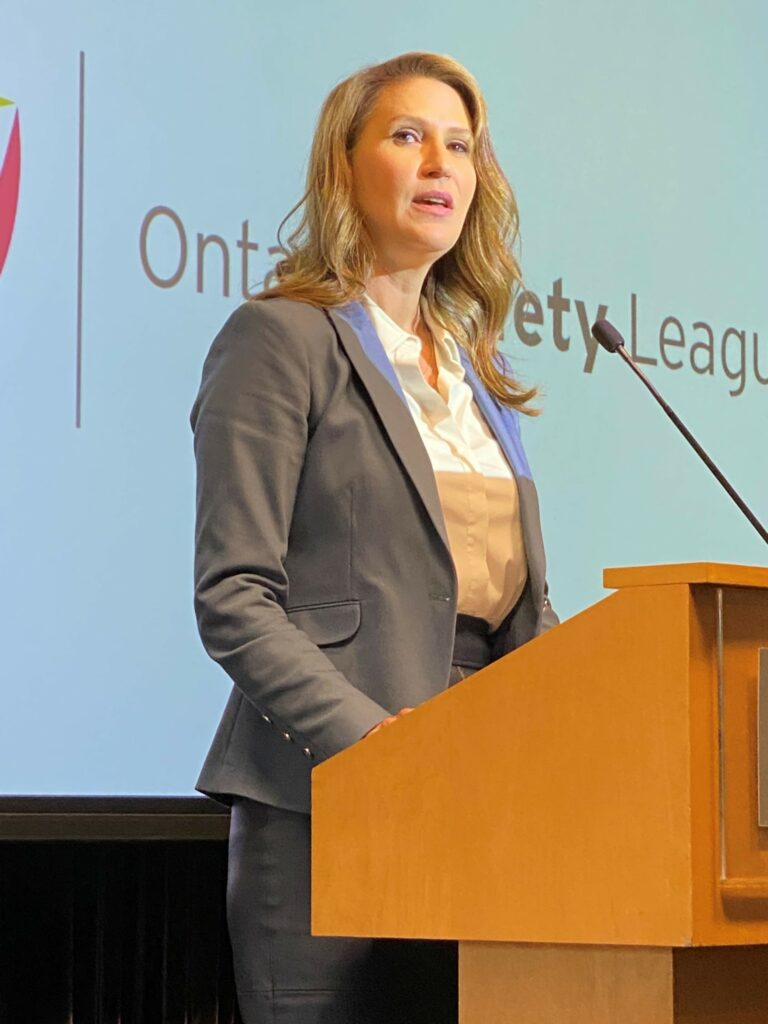Mulroney highlights infrastructure investment, protection
Ontario Transportation Minister Caroline Mulroney highlighted provincial infrastructure investments in an April 7 speech that also committed to the Safe, Productive and Infrastructure-Friendly (SPIF) vehicle configurations that help keep highways from crumbling.
Speaking during an Ontario Safety League (OSL) luncheon, the minister noted the government has allocated $83 billion over the next 10 years to expand transit and transportation infrastructure, including highways, roads, and bridges.

“Heavy vehicles put stress on Ontario’s road network, especially on municipal roadways, damaging infrastructure, which compromises road safety,” Mulroney said, noting the government will remain firm in enforcing the underlying regulations.
As the provincial government raises the speed limit to 110 km/h on six sections of southern Ontario highways beginning April 22 — and introduces the higher speeds on a trail basis to two sections of highways in northern Ontario — she stressed that safety must remain paramount in such changes.
“Safety is a priority in this initiative. Each section has been carefully chosen based on several factors including the ability to accommodate higher speeds,” she said.
Further commitments have been made to protect victims who are trafficked along highway corridors.
The minister said the government is working closely with the trucking industry in promoting a human trafficking hotline to raise awareness of the crime. She said $300 million has been committed over the next three years to combat human trafficking.
The province’s rest area infrastructure is also being improved where feasible, adding lighting and security cameras, and posting information encouraging people to be on the lookout for signs of human trafficking.
Have your say
This is a moderated forum. Comments will no longer be published unless they are accompanied by a first and last name and a verifiable email address. (Today's Trucking will not publish or share the email address.) Profane language and content deemed to be libelous, racist, or threatening in nature will not be published under any circumstances.
She and the Ford gov policies have cut funding for proper medical supplies care and proper food and temporary housing. They stopped disabled truck drivers and vets from getting the help they needed. The private sector did not pickup the slack. This overloaded non-profit groups that could not even afford hydro or gasoline or insurance to house and transport disabled truck drivers. This result in problems like the blyth shelter that shut down a week ago .